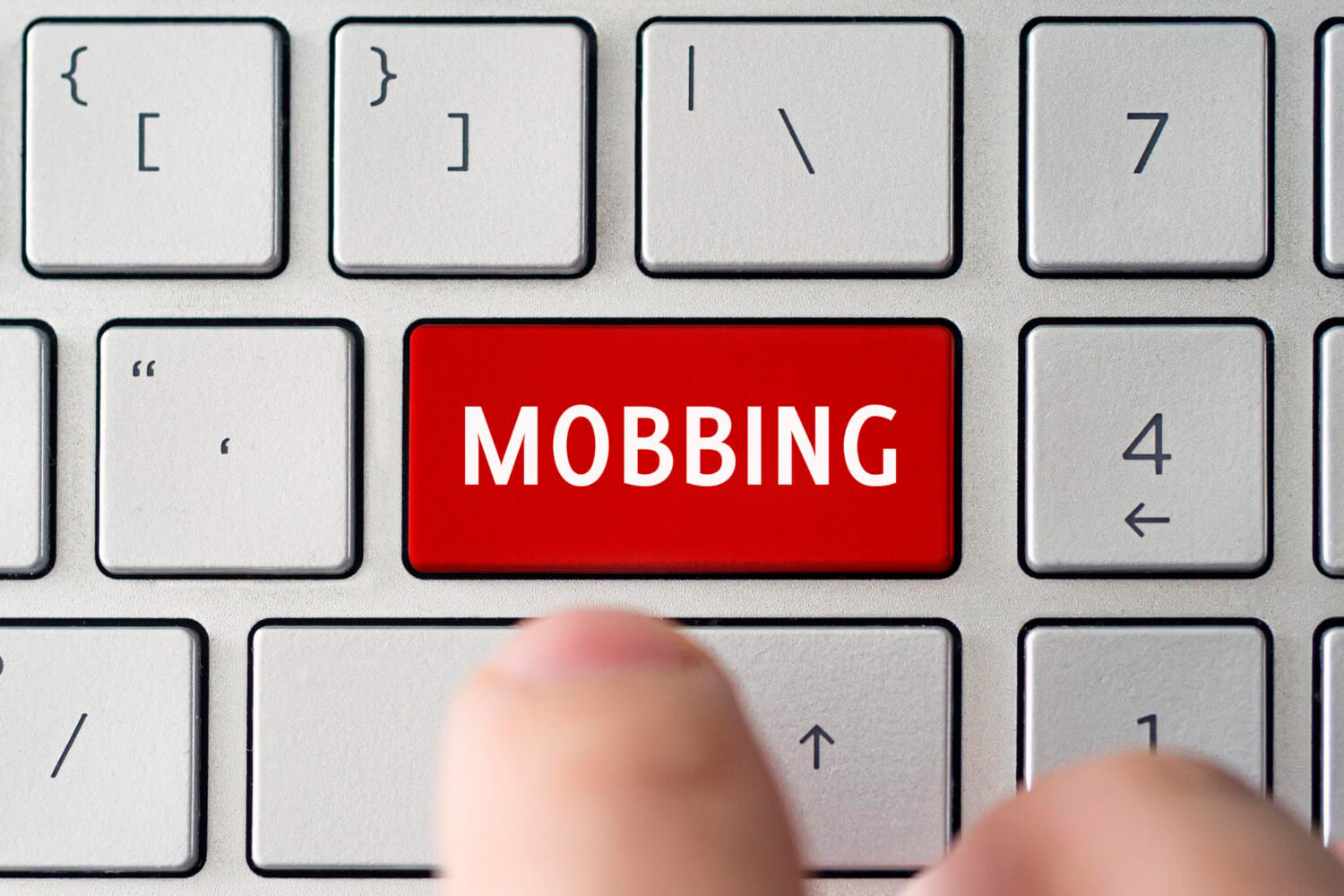Your Partner
in Legal Success
| Reading Time: 4 Minutes
What is Mobbing in The Turkish Legal System?

“Mobbing” is a new concept recognized by the Turkish legal system. Mobbing means bullying an individual by a group in any context, such as; family, friends, peers, school, workplace, neighbourhood, community, or online. When it occurs in the workplace, it falls within the scope of the relevant labour legislation.
Mobbing as a legal concept is defined by the Turkish Court of Appeals as; “a psychological terror appearing as directing someone a hostile and immoral communication directed systematically from one or more persons to another.”
Is Mobbing Discrimination or Violation of Human Dignity?
The term “mobbing” is interpreted differently in various legal systems. The main distinction of interpretation is between common law and civil law. In common law systems, the judicial decisions about it are based on “discrimination” and “violation of equality.” In civil law systems, it is interpreted as a “violation of human dignity” rather than a violation of equality.
The common law system dignifies the “equality” between the employer and employee or between all employees. It is understandable when we look at American history and the prior discrimination cases between U.S. citizens.
Mobbing is Not The Same as Bullying!
Another important point is to differentiate “mobbing” from “ bullying.” They have some common aspects of the course, but “bullying” defines physical assault more than psychological harassment.
Mobbing is more about psychological terror, repeatedly committed by employers or other employees. In the Turkish system, mobbing is translated as psychological harassment (psikolojik taciz) or moral and emotional harassment.
How Can We Recognize a Mobbing Act?
The common trait of a mobbing act is that it appears out of nowhere, but it results from a long-standing and systematic act. It is very important not to define every nervous behaviour, fight or discussion as mobbing. Mobbing requires more systematic actions rather than one wrongdoing or misbehaviour. In other words, the victim of mobbing must be harassed systematically.
The most important and significant elements of mobbing are determined by the court decisions and doctrine as follows:
- Knowingly and intentionally engaging in mobbing,
- Repeating the behaviour systematically,
- Continuing the same behaviour for a certain period (i.e. at least for six months), and
- Intending to distract the employee from their work, i.e. by frustrating them.
Another research attributes mobbing to the three parameters stated below:
- Being exposed to negative behaviour systematically (like once in a week),
- Being exposed to negative behaviour for a certain time (at least six months) and,
- Power inequality between the harasser and the victim.
How Does Turkish Legislation Define Mobbing?
In the Offical Gazette dated 19.03.2011 and numbered 27879, the Prime Ministry issued a circular “Prohibiting the Psychological Harassment (Mobbing) in the Workplaces.” This circular defines mobbing as;
“…psychological harassment appears like humiliating, underrating, externalizing, injuring the honour and personality, maltreating, frustrating an employee systematically on purpose for a significant period…”
How Do The Turkish Courts Interpret Mobbing?
• The decision of Ankara 8th Labour Court dated 2006 is the first decision of Turkish Courts about mobbing. In this case, the employee was psychologically harassed by his superior after the change of management at the workplace. The employee was exposed to nervous behaviour, oral and written pressure and unjust reprimand by his superior. The same superior requested five defence statements within 1.5 years from the employee due to his acts. The court of the first instance decided that the employee was exposed to psychological harassment/mobbing, and the employer was sentenced to pay ₺1.000 for damages for pain and suffering. The 9th Chamber approved this decision of the Court of Appeals. This decision established the precedent in Turkish Law on mobbing. In the decision, mobbing was defined as “every kind of systematic maltreatment, threat, violence, humiliation to an employee by his employers, seniors, colleagues or juniors.”
• In a decision of the Court of Appeals Assembly of Civil Chambers numbered 2012/9-1925 E., 2013/1407 K. and dated 25.09.2013, changing the workplace of a married, 56 years old lady lawyer for 30 times in nine months after having worked for 14 years in the same workplace, was interpreted as “mobbing” and the court defined mobbing as:
“…as it is seen, for accepting a behaviour as psychological harassment, one employee must be targeted, the behaviour must be continuing and this situation must be systematic…”
• 9th Chamber of the Court of Appeals underlined the continuation factor of the actions in its decision numbered 2008/37500 E., 2010/31544 K. and dated 04.11.2010:
“…the claimant is in psychological depression because the effects and consequences of the harassment are continuing and despite there is no negative evaluation about his performance, the performance grade was lowered after these actions…”
The Turkish doctrine generally states that mobbing acts must continue between three months to three years. In comparative law, a minimum of six months of the acts are required for defining a case as “mobbing.”
However, determining a substantial period is impossible, and every case must be evaluated individually. The effects on the victim and the duration are determinant.
Mobbing cases find their spot on the news in the Turkish media. Lately, a male associate professor in Istanbul Yildiz Technical University brought a suit against six female colleagues claiming to mob.
He claims that he has been exposed to “psychological harassment, defamation and attrition for years” and that there is “woman staffing” in the workplace so that the male teaching assistants are exposed to get distracted. Although there are many allegations of mobbing and cases filed in Turkish courts, the preconditions explained above must be present for a case to be accepted.
Conclusion
Mobbing is still relatively new to the Turkish courts, but the courts seem to be on the right track to establishing certain preconditions and principles concerning mobbing cases.
However, it is worth noting that the courts generally scrutinize the mobbing claims very carefully. When it comes to compensation, they tend to award compensation only in specific cases and limit the compensation to rather nominal amounts.
The content of this article is intended to provide a general guide to the subject matter. Specialist advice should be sought about your specific circumstances.
Related Articles:
- Court of Appeal Decision Regarding The Request For The Collection of The Penalty Clause Due to The Worker’s Violation of The Ban Competition,
- What is The Definition of Work Accident?
- Foreign Court Decisions in Turkey: Recognition and Enforcement,
- Crime of Violation of Privacy (Turkish Penal Code Article 134),
- Obtaining a Work Permit in Turkey.



